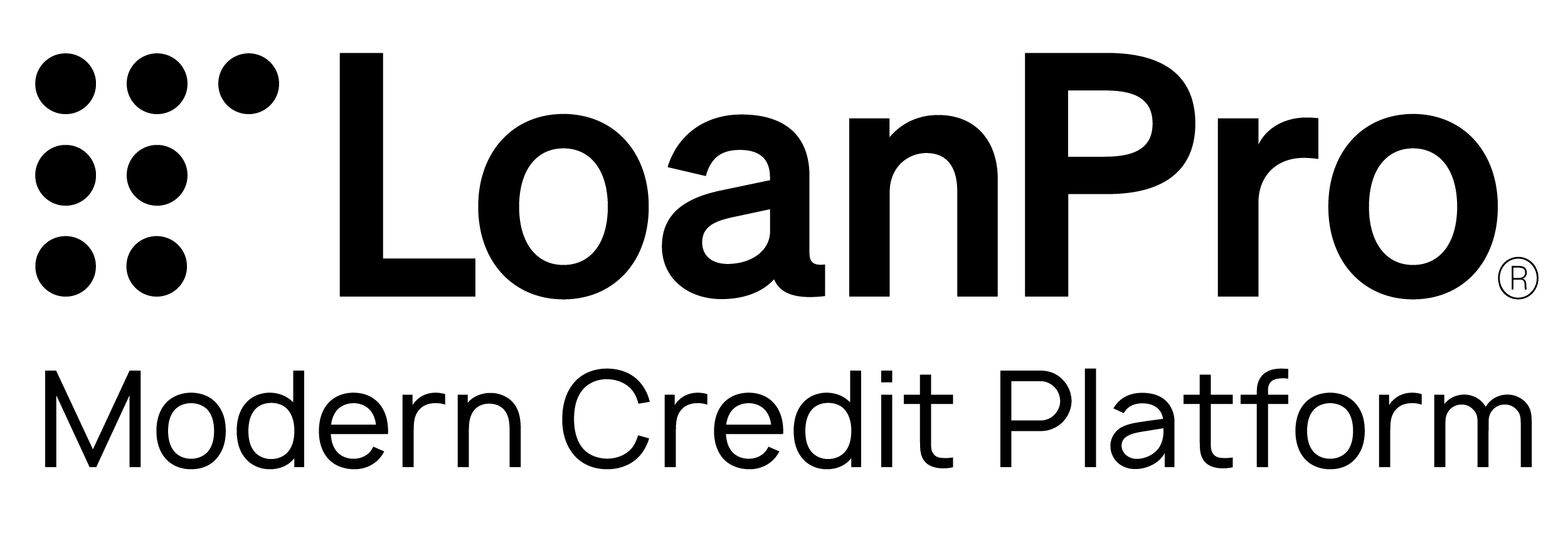Table of Contents
Introduction
Adding references to your customers’ files is a good way to keep track of people who can vouch for your customer and who may be able to give you information that can aid in your collections efforts if it comes to that. This article will briefly go over what references are and how they fit in lending. Once you understand how references work, head over to our article Add a Reference to learn how add them in LoanPro.
Highlights
References are associated with a customer only. This means that references exist completely independently of loans or leases. If you create a new loan and assign a customer to the loan, the references entered for that customer come with it.
When deciding whether to gather and enter reference data, it’s a good idea to set a company policy for what will be done with the data first.
LoanPro lets you save the following information about references:
- Name
- Relation (how the reference is related to the customer)
- Phone (including a primary and secondary)
- Address
If the reference is located in the United States, you also have the option to verify that the reference address is a real address.
Where Does References Fit?
None of this information is required, so you can decide how much or how little to collect. You can accomplish several objectives by requiring references, but if you aren’t going to do anything with the data it may not seem like an advantage to collect it. We recommend you always collect reference data anyway. The reason for this is that once you are put in a collections situation, it is always nice to have all the information possible when trying to collect on the debt.
Underwriting
When you decide to give a loan, you will want to have the best information possible to know whether the customer will repay the money. Reference information can tell you several things. If the customer is unable to give you the required number of references, they should be considered a larger risk. This usually indicates that the customer doesn’t have sufficient ties to other people and probably don’t have anything to lose by not paying your money back. They may have more relationships than they have references, but likely they are bad relationships. This could indicate financial instability.
If the customer gives references but they are all located in a distant geographical location, this probably shows that the customer moves around a lot or doesn’t have ties to your area. When giving a collateralized loan, this may indicate that the collateral will soon be taken far away making it more difficult to repossess. If the loan is un-collateralized, this may tell you that the customer is prone to leave the area and “start over” or choose to disregard their debt to you.
If you choose to verify the reference addresses and they aren’t real, you will know that the customer has a tendency to be dishonest.
If the references look good on paper, you can also choose whether or not to call them. Calling references is usually a good practice. Make sure you ask a standard set of questions so it’s easy to compare answers across references and across customers. Consider asking things like “Would you loan [customer] money?” If the reference, a person the customer chose to list, wouldn’t loan money to the customer, you probably shouldn’t either.
Servicing
If you have done your due diligence with the references provided by the customer, they are probably people who will know your customer’s situation and can help you get updated contact information for the customer. This can be very helpful, since most customers don’t make an effort to let their lender know when they move or get a new phone.
Collections
References are most helpful when trying to repossess collateral. Reference addresses are locations where the collateral or customer may be located if a face-to-face meeting is needed. Even if loans are un-collateralized, collections efforts are more effective if they are done in person once in a while.
It's important to make sure that your collections efforts don’t violate any national, state, or local collections laws, and to ensure that you don’t disclose information about customers’ loans to references.
This Feature is Not
- You can't add any type of documentation to a reference. Our reference tool only takes the contact information of a reference, and doesn't let you save documents on the reference themselves. Instead, you would save that document to the loan or borrower (and maybe create a references section to keep them separate from other loan documents).
- References aren't the best place to add employer information. Although one of the options for a reference relation is “coworker,” that's really intended to be a peer who can vouch for the borrower's character and confirm that what they told you is true, like any other reference. If you want to add more specific information about where they work, like their position or salary info, we recommend you update their employer information.
- You can't just say anything when contacting references. If you're calling before you issue a loan, that's legally an investigative consumer report, which is governed by the Fair Credit Reporting Act (FCRA). And if you're contacting references as part of your collections efforts, the Fair Debt Collections Practices Act (FDCPA) limits what you can disclose or ask. You should also work with your legal team to learn if there are any state or local laws that apply to you.
What's Next?
Once you understand how references work, you're ready to start adding them to your customer's profile. You may also be interested in learning more the other tools available in the Customer Manager.
